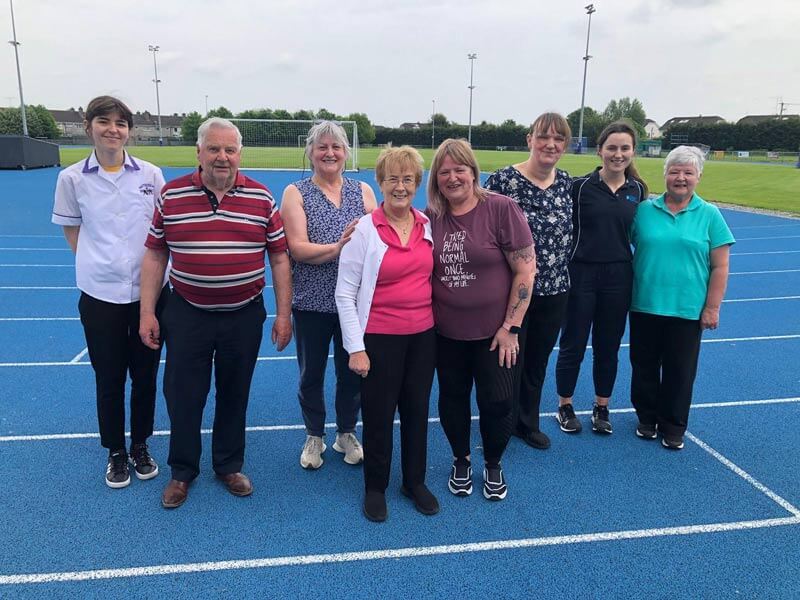
The new Hip and Knee Pathway, piloted in Navan and Waterford, has already served over 1,700 people suffering with osteoarthritis, write Ruth Kiely, Programme Manager – National Clinical Programme for Trauma & Orthopaedic Surgery, RCSI AND -Sheema Lughmani, Communications Officer, Office of the Chief Clinical Office, HSE.
Osteoarthritis is one of the most common causes of pain and disability in Ireland, with approximately 13% of people over 50 years surveyed in the TILDA study self-reporting symptoms. . It leads to joint stiffness, reduced mobility, weight gain and for many people, time off work. Until recently, treatment options offered to people were often limited to medications or surgery.
But thanks to a service re-design approach from the National Clinical Programme for Trauma and Orthopaedic Surgery (NCPTOS), in partnership with the HSE’s Modernised Care Pathways and Sláintecare Integration Innovation Fund, patients with hip and knee OA are now getting quicker access to more effective, patient-centred care.
Getting the Right Care, Sooner
Under the pilot pathway, patients referred by their GP are assessed by a Clinical Specialist Physiotherapist in the community setting. They are offered a tailored programme of exercise, lifestyle advice particularly around healthy eating by the dietitian, and education on managing their condition. Only those that need to see an orthopaedic consultant are referred to the hospital for an appointment.
“This is about making sure people get the right care, in the right place, at the right time with the right person,” said Mr Alan Walsh Consultant Orthopaedic Surgeon “Previously, many people were referred straight to an orthopaedic clinic, but not everyone needs to see an orthopaedic surgeon or have surgery. In fact, most people can manage their osteoarthritis through education, exercise and weight management. We’re seeing excellent outcomes and a huge improvement in quality of life for our patients that have participated in this programme.”
Between April 2023 and February 2025, 1,734 referrals were received through the pathway. Of these, only 3.4% of patients needed an outpatient appointment, and less than 1% required surgery.
Mr Finbarr Condon, (Joint Clinical Lead, National Clinical Programme for Trauma and Orthopaedic Surgery, RCSI), sees this as a win-win for both patients and the health system. “It means we’re freeing up hospital consultants to see the patients who really need them, while also helping people improve their quality of life without the risks or delays that come with surgery. People are staying active, staying independent and staying out of unnecessary surgery.”
Digital Tools Supporting Self-Management
A key part of the pathway is empowering patients to take control of their own care. To support this, a new digital app has been developed that allows patients to access exercise videos, monitor their progress, and even request a follow-up review through a patient-initiated review (PIR) feature.
Launched at the participating sites in November 2024, the app has already proven popular with patients. Despite being developed for less than half the original budget, it has delivered major value by extending care beyond clinic walls.
A Cost-Effective, Scalable Model
With funding provided through the Sláintecare Integration Innovation Fund, the pilot programme has been able to test the full end-to-end model of care, from GP referral, to physiotherapy-led treatment, to digital follow-up. The total cost to date, including app development, has been €757,000, well below the original budget of €1.17 million.
Mr Condon believes the success of the pilot shows what’s possible when services are designed around patient needs. “This pathway reflects what Sláintecare is all about- integrated care, earlier interventions and better use of resources.”
Looking Ahead
With demand for orthopaedic services expected to rise in coming years, there is strong support for rolling the Hip and Knee OA Pathway out nationwide. The pathway also serves as a model for other musculoskeletal conditions that could benefit from similar approaches.
“This is population health in action,” says Mr Tom McCarthy,. Joint Clinical Lead, National Clinical Programme for Trauma and Orthopaedic Surgery, RCSI. “We’re using evidence, data and clinical leadership to redesign how we deliver care. And the results speak for themselves.”
“This couldn’t be more evident in the patient feedback. I think this programme should be available to everybody. It was so beneficial to me. I think everyone right around the country should have access.”
See Patient Feedback – https://www.youtube.com/watch?v=0lcz59o318E

